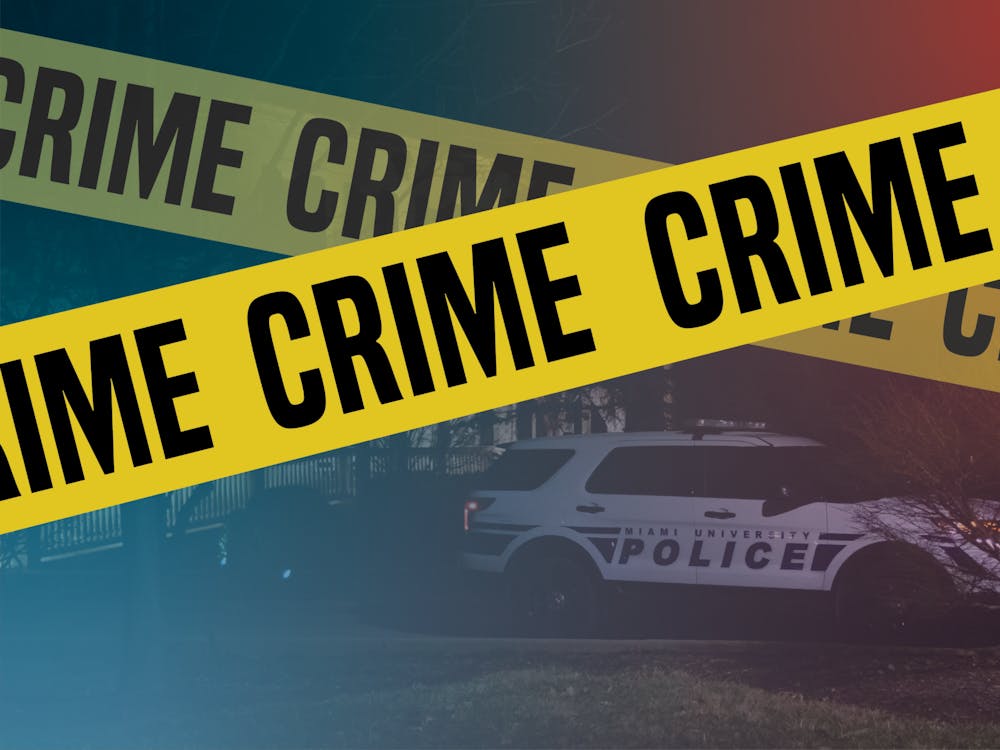Fifty-six years ago, the Western College for Women trained volunteers who would go on to participate in a fatal effort to register southern Black Americans to vote now known as Freedom Summer.
More than half a century later, Miami University welcomed the tenth National Civil Rights Conference to its campus to commemorate those who had a hand in working toward Black liberation.
The conference was held June 21 - 22, primarily in Miami’s Shriver Center and Marcum Hotel & Conference Center, with around 40 people in attendance. It was made up of this many lectures and featured an unveiling of a new historical marker in Oxford.
The conference began with the unveiling of a historical marker honoring Henry Corbin and Simon Garnet, two African Americans lynched in Oxford between 1877 and 1892.
Members of Corbin and Garnet’s families unveiled the marker in Uptown Park. A descendant of Corbin’s, Chris Jerreals, said the marker was able to present a more accurate story than what was reported at the time.
“I'm glad that they put the story that I grew up knowing, which is entirely different from the newspaper and the history texts,;” Jerreals said. “[This is]something that is not uncommon; it’s slanted to their side. They feel like they have to justify what they’ve done. But I’ve known that story; I've known the history since I was a little girl.”
Having heard a different story growing up than the one commonly accepted, Jerreals said having her family’s story acknowledged is an important step for the community to learn from the past.
“It’s my belief that there's history, there's family stories and somewhere right in the middle is the absolute, God awful truth,” Jerreals said. “Nobody can really know the truth. It's not easy. You have to accept the history, knowing that it's not that it's not 100% gospel truth.”
As the conference continued, speakers from both the university and outside of it discussed different aspects of civil rights in America.
The first session, presented by Women of Color for Equal Justice founder and director Jo Saint-George, discussed legislation for criminal justice reform, specifically detailing bills meant to prevent police brutality.
Following this, Miami Art Museum Curator of Exhibitions Jason Shaiman and Canal Winchester School District Instructional Coach Alyssa Locker presented the Miami Art Museum’s Telling a People’s Story exhibition, focused on African-American children’s books.
Throughout the conference, speakers focused on political change, activism and the history of the civil rights movement.
Enjoy what you're reading?
Signup for our newsletter
Kendrionne Anderson, a political science major at Grinnell College in Iowa, presented at the conference as a member of Daughters Beyond Incarceration, an organization meant to support daughters of incarcerated parents. During her presentation, she and other members discussed the impacts parental incarceration can have on families.
Anderson said she was thankful to have a platform where she could speak about social change.
“I feel like a lot of the smartest people and the most talented people often have stage fright,” Anderson said. “But I'm not one of those people, I like to be heard. So I'm always willing to talk, and I'm always willing to be a part of something where I get to share how I feel and share what needs to be done.”
Drew Glover, Executive Director of the Selma Bridge Crossing Jubilee, said conferences like this can help to push for social change and create awareness, even if indirectly, by creating starting points for larger conversations within communities.
“I don't think there's going to be any systemic change that comes from this conference [immediately],” Glover said, “but I think the connections that are made at this conference, and the people and the possibilities that are born from it will make lasting and substantive change out in the world.”
Anthony James, associate professor, director of Miami’s Family Science Program and interim vice president for diversity & inclusion, said the unveiling of the marker and the hosting of the conference could have a positive effect on Oxford. He hopes it will be able to inspire conversations about inclusion and potentially create change.
“The community can now look back honestly at what it experienced, what two individuals and families experienced within this community, and be honest about it so that we can move forward,” James said. “We hope to have some community conversations around the topic, we certainly know that communities will be able to engage with [the marker] as it’s in a high-traffic area, and classes will likely engage [with the marker].”
For Glover, the conference’s choice to be located in Oxford is valuable to create change, but this need for conversations and change is not at all unique to Oxford or Miami University.
“I think it's important here specifically because of the history that's associated with Oxford: The Freedom Summer, the acknowledgement from EJI about the lynchings and seemingly this attempt to racially heal the community,” Glover said. “But I would say that these things should happen in every state.”




